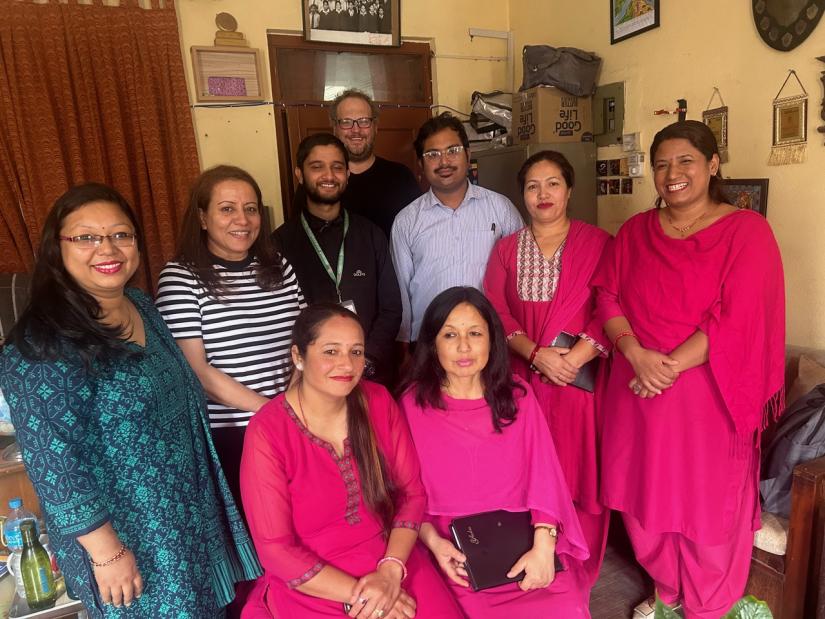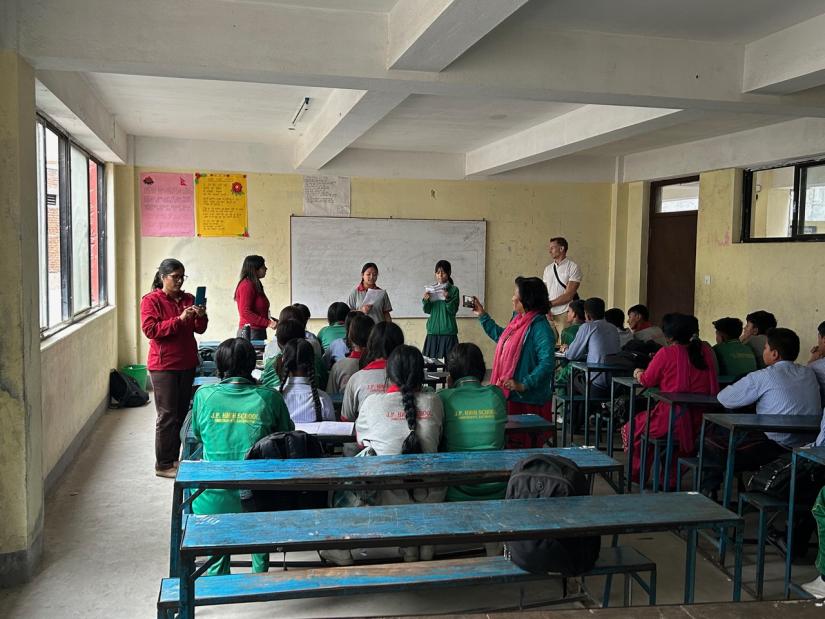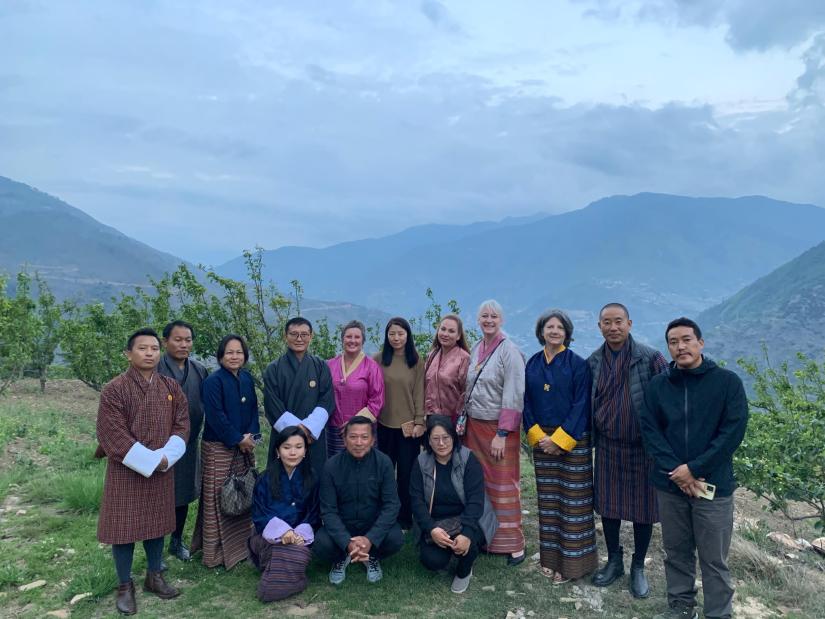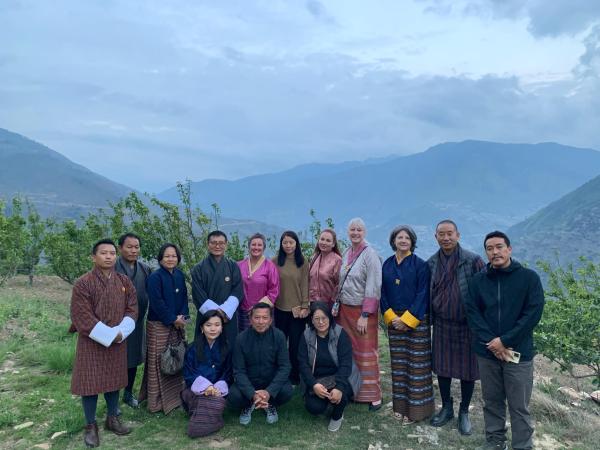UTS was awarded a Department of Foreign Affairs and Trade (DFAT) grant to host Australia Awards Fellows from schools, universities and an NGO in Nepal and Bhutan. Fourteen Fellows visited UTS in February 2024, and in May, UTS academics visited them in their home countries.
Groups of Fellows had designed projects addressing inclusion, equity and quality in classrooms, often with a focus on enhancing collaboration between teachers, relationships between schools and communities, and links between curriculum and culture, including spiritual aspects and Indigenous knowledges and languages.
Nepal

Dr Keith Heggart, Dr Nick Hopwood and Anjana Regmi visited Kathmandu, where Bal Chandra Luitel and Binod Pant from Kathmandu University School of Education have been supporting colleagues in local schools.
At Saraswoti Niketan School, the principal, Rabina Maharjan, has instituted a program to promote inclusivity and diversity of the local community, including the Newari group (Indigenous to Kathmandu Valley). This project makes use of the resources, such as hitis (communal water fountains) to turn the local area into a learning resource for students. Teachers worked collaboratively to link science, mathematics, art, English, Nepali and Newari language to hitis, and it was so successful that the school now plans to run similar initiatives linking to other cultural heritage sites, with ‘culturally responsive and responsible pedagogies’ as a new signature pedagogy for the school.
At Shree Juddodaya Madhyamic Vidhyala School, science teacher Sarita Nepal has worked with fellow teachers of mathematics, Nepali, social studies and accounts to bring all their teaching around climate change in synch. Together they promoted more student-centred pedagogy, including role-plays, creating infographics, and writing editorials for newspapers about climate change. Students were challenged to reflect upon their own role as active citizens in the community. Teachers felt students were more confident and engaged as learners, tackling related content at the same time, and this initiative serves as a model for other integrated approaches.

At the NGO REED (Rural Education and Environmental Development) Nepal, Mukhti Ghimire his team have been working in some of the least-resourced schools in Nepal. Their project involves making use of the existing tangible and intangible resources in the local community, including older members of that community, to connect the curriculum to local folklore, history and artefacts. This prototypes a new way of supporting teacher professional learning in remote Nepali schools.
Bhutan

Dr Lauren Knussen, Dr Marie Quinn, Dr Kirsty Young and Honorary Industry Fellow, Dr Kimberley Pressick-Kilborn travelled to Paro, Bhutan to work with colleagues from Paro and Samstse Teachers' Colleges (Royal University of Bhutan) who have been supporting Fellows from Tendruk Central School, and Khangkhu School.
At Tendruk Central School, the Phentshen Dhumra project has taken off, led by Tshering Dorji, Kesang Wangmo, Ugyen Tshomo and Tshering Dorji. Phentshen Dhumra means ‘garden benefitting everyone’. Fellows designed the project to support inclusion and shared activity between the schools’ mainstream students, those with disabilities, and parents as key peer supports in the school community. The gardening activity is linked to the agriculture curriculum in the mainstream classrooms, while providing opportunities for students with disabilities to collaborate with others, and develop motor and social skills. The project has been supported by the community renewable natural resources representative. UTS academics supported Fellows on how the inclusive benefits of the project might be strengthened, as well as discussing a spin-off collaborative kitchen initiative.
At Khangkhu School, Tshewang Llamo has worked with fellow Grade 4 teachers, supported by Yoesel Choden and Pema Chopel. This project aims at fostering collaboration between teachers so they can develop common ways to support areas of common struggle across subjects, as well as develop joint approaches to planning lessons. They have already achieved breakthroughs in relation to managing challenging behaviour, and UTS academics supported the Fellows in relation to intended collaboration around integrated teaching, literacy and preparing students for their first exams.
These person-to-person visits have strengthened collaborations with universities and schools in both countries.


